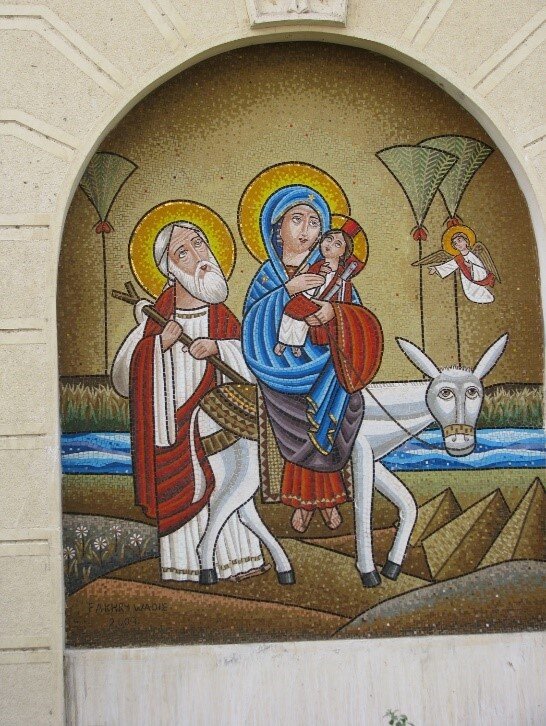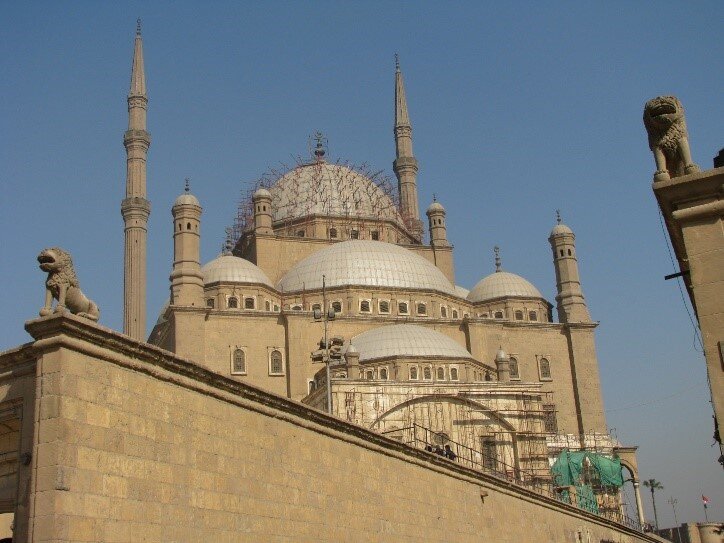History of The Outreach Foundation in Egypt: Introducing a 2000-Year-Old Church
INSTALLMENT 1 OF THE HISTORY OF THE OUTREACH FOUNDATION IN EGYPT
by Jeff Ritchie
It has been a great joy to write some of the history of The Outreach Foundation between 1998-2018. The first volume of our history was about our missions in China. This present volume will cover our work in Egypt during the same period. But first, we must give some history of the Church in Egypt.
A First-Century Church
Egyptians are very proud to point out that Joseph, Mary, and Jesus went to Egypt to escape King Herod. They probably lived among the large Jewish Diaspora there. Tradition has it that Saint Mark went to Alexandria in AD 45 and made the first Christian convert. From that time until the seventh century, the Church grew, enduring periods of persecution, until it became the dominant religion of Egypt and produced some of the greatest theologians for the early Church. The monastic movement also began in Egypt. In short, Egypt was a significant center of the early Christian movement prior to the coming of Islam in the seventh century AD.
The Arrival of Islam
When the Arab armies conquered Egypt, Islam became the official religion of the land. Under Arab rule, Egypt’s Christians had to pay a tax if they wanted to remain Christian. Over the next 300-400 years, a majority of Egyptians became Muslims, and the Christian minority was increasingly concentrated in the middle part of Egypt.
Christians in Egypt were known as “Copts,” and the Church in Egypt was the Coptic Orthodox Church, a branch of the Orthodox Communion. They had their own Pope who traced his office back to the time of St. Mark. Although their heritage was strong, the percentage of people in Egypt who were Christian continued to decline. By the beginning of the twenty-first century, Christians numbered 10-12% of the population.
The Coming of the American Presbyterian Mission and the Emergence of a Presbyterian Church in Egypt
Presbyterian missionaries went to Egypt in the mid-1800s with the aim of renewing the Coptic Orthodox Church and inspiring it to reach out to the Muslims in the land. Unfortunately, the theological and cultural differences between the Orthodox and Protestant expressions of the faith led the Orthodox leadership to reject the missionary efforts. Some Orthodox laypeople did accept the message of the missionaries, however, and the churches the missionaries formed from these converts became the nucleus of the Coptic Evangelical Church. Over the years this Presbyterian communion became known as the Evangelical Presbyterian Church of Egypt, Synod of the Nile.
The Presbyterian Church (USA) sent hundreds of missionaries to Egypt over the 150 years prior to the involvement of The Outreach Foundation. Over time, the missionary number declined, and by 1998 when we began our work, there were only a handful of Presbyterian mission co-workers, most of whom were connected to the Evangelical Theological Seminary. The Synod of the Nile was a fully independent church carrying out its own ministries and mission as a minority faith in a 90% Islamic context.
At the time The Outreach Foundation began its work in Egypt, the Synod had over 300 churches, a seminary and a large system of church-related secondary schools. A non-governmental organization founded by Presbyterians, the Coptic Evangelical Organization for Social Services (CEOSS), was effectively engaged in community development throughout the nation. Additionally, Presbyterians formed the principal leadership of the Bible Society of Egypt, a non-denominational ministry supplying Bibles for all Christian communions. Egyptian Presbyterians, while comprising only about .5% of the total population of Egypt, were having an impact beyond their numbers. However, they — and all Christian communions — were circumscribed in what they could and could not do in relationship to their life and ministry.
Any new church construction or repairs to existing churches required the signature of the President to approve a building permit. Often churches would have to wait years for simple repairs to be approved.
Conversion from Christianity to Islam was constantly encouraged and sought for, but to convert from Islam to Christianity invited possible death.
On a more personal level, a Christian could work in the government but could never aspire to a post at the highest levels. They were reserved for Muslims.
Into this context came The Outreach Foundation, an evangelistic mission organization.


